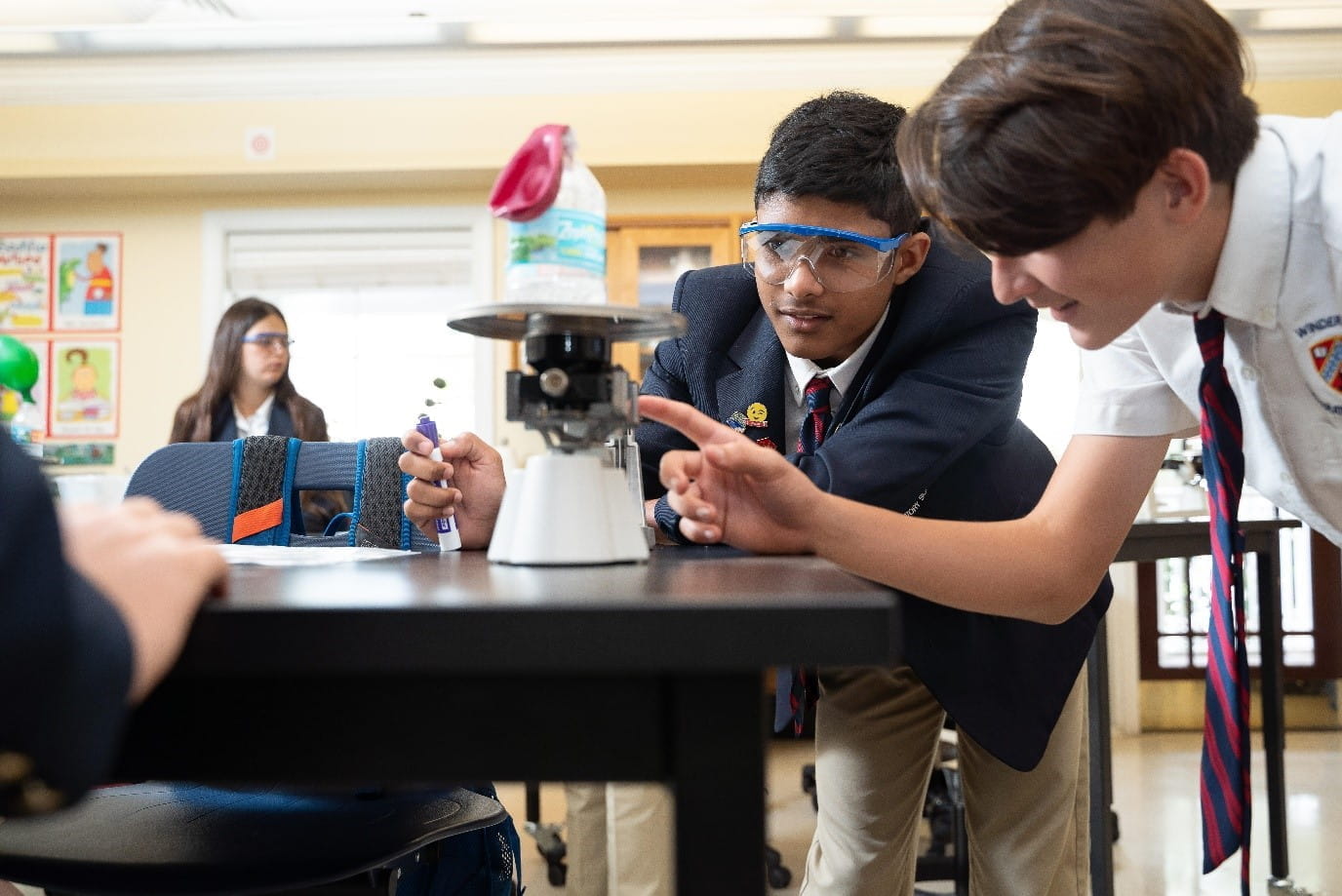We use cookies to improve your online experiences. To learn more and choose your cookies options, please refer to our cookie policy.

Education is an indispensable part of every childhood. For parents, selecting the right school is critical to delivering the very best education to your child. There are many different questions to ask yourself when weighing up your child’s educational future, but one of your very first should be whether a private or public school is the right place to start.
If you’re dubious that private school may not be worth it, consider the following key differences between them and public schools. It may aid your decision when looking to pave the most effective educational path for your child.
Private schools differentiate themselves from public schools in a number of significant ways. Each of them contributes to a greater academic environment that breeds a higher degree of success. Here are five of the most impactful on a child’s education and personal development.
1. Class Sizes
One of the most important ways in which private schools differentiate themselves from public is the size of each class. A public school may have a class filled with as many as 30 students, particularly in cities and busy urban areas. A private school puts greater emphasis on smaller class sizes of around 20 and often even fewer.
The benefits of smaller class sizes cannot be underestimated. Among the ways a child’s education will improve are:
2. More student focus
With fewer children comes less opportunity for distraction. Larger class sizes mean some children will be pushed further away from the front of the class. Teachers find it harder to keep everyone focused, and it could lead to a child’s mind straying from the lesson.
3. Greater friendships
A smaller group can more easily be encouraged to get to know one another, making it easier to form lasting, meaningful friendships. This sense of community is vital to private schools and can contribute to a better learning environment. This principle is extended to the teachers, who are able to spend more time forging positive experiences for each child.
4. Time for one-to-one teaching
Public schools with large class sizes often struggle to give each individual child the personalised attention they need to excel. In private schools this problem is reduced. Teachers can spread their time around the class, getting to know the learning capabilities and preferences of each child. Feedback is a vital part of the learning process and smaller class sizes allow for more of it.
5. More accurate grading
Public school teachers are often buried under piles of papers and exams they must grade. To make marking as efficient as possible, these assignments may be simplified in public schools. With fewer papers to grade in private schools, teachers can commit more time to each one. This allows for more layered, sophisticated assignments and more personalised feedback for the student.
The curriculum taught in private schools is another major point of difference when compared to public schools. Private schools are not bound by state laws that influence what they can and can’t teach. The benefits of this approach include:
More choice for parents
Whilst public schools are not able to offer much flexibility in the subjects they teach or the focus areas within each subject, private schools are free to mould their own curriculum. It gives parents a wider breadth of choice, allowing them to select a school that offers the curriculum that’s right for their child.
For parents who are interested in specialist areas, such as certain faiths and religions, private schools can offer you a more pointed curriculum.
More enthusiasm from teachers
With more academic freedom, teachers in private schools are able to craft a specialist education for their students. As with many industries, those in teaching embrace greater flexibility and freedom in their role. Students will be the ultimate benefactors of this greater level of educational enthusiasm from their teachers.
Specialist education
Private schools often differ in the way they hire teachers too. With fewer constraints over who they can employ, they often focus on hiring people with specialist knowledge in certain subjects. Public schools are required to hire those with certain teaching qualifications. A private school may favour those with a Masters degree or PhD in their specialist field.
This way, a private school can build a team with expert knowledge in all the right areas, rather than teachers who have a baseline knowledge across many subjects.
Students at private schools tend to spend more time there when compared to public school students. At a private school, more emphasis is placed on extracurricular activities, allowing for children to learn and improve upon a wider set of skills or develop a greater level of proficiency in a subject.

For children who have a deep level of natural talent for something, finding the right private school can be the key to greater progress. If your child excels in sports or the arts, there is sure to be a private school with dedicated after-school programmes to help nurture this talent.
Public schools do offer after-school clubs and sports teams, but their breadth is much more limited when compared to private schools. The programmes are often not as advanced, with the objective more recreational than a private school
Studies have shown that a higher ratio of students who attend private schools go on to pursue higher education. In 2015, the Council for American Private Education (CAPE) showed how private school students were more likely to be ready for college than public schoolers – a conclusion that was consistent across English, Reading, Mathematics, and Science.
The factors outlined above all contribute to this, but generally, private school is considered the first step on a long and fruitful educational ladder. They are designed to ensure students are able to take the next step, be it secondary school or university.
Private schools, and particularly those that offer boarding, are also able to put greater emphasis on preparing a child for adulthood. The sense of community that private schools endeavour to create allows for more growth of social and independence-based skills.
When weighing up the costs involved in choosing a private school, you’re certain to ask yourself if the extra investment required is worth it. The five points of difference above outline the benefits of choosing a private school, but you only need to look at the outcomes of private education to see the true value.
The National Assessment of Educational Progress (NAEP) has published reports in the past that show greater academic success among private school children when compared to public. This NAEP report showed that children in grades 4 and 8 achieved higher levels of reading and mathematics than their public school counterparts.
Government data tool The Nation’s Report Card is the best way to compare private and public achievement at a glance. Using their dashboards, you can identify the average NAEP score across subjects for children in grades 4, 8 or 12.
Deciding on the best educational pathway for your child is a decision not to be taken lightly. Private schools come with several key points of differentiation when compared to public schools. The result is the growth of a child with strong educational skills and an ambition to excel in their next steps. Find out more about how students achieve academic success thanks to schooling with Nord Anglia Education.
Want more of the latest insights into education? Read our INSIGHTS publication here!